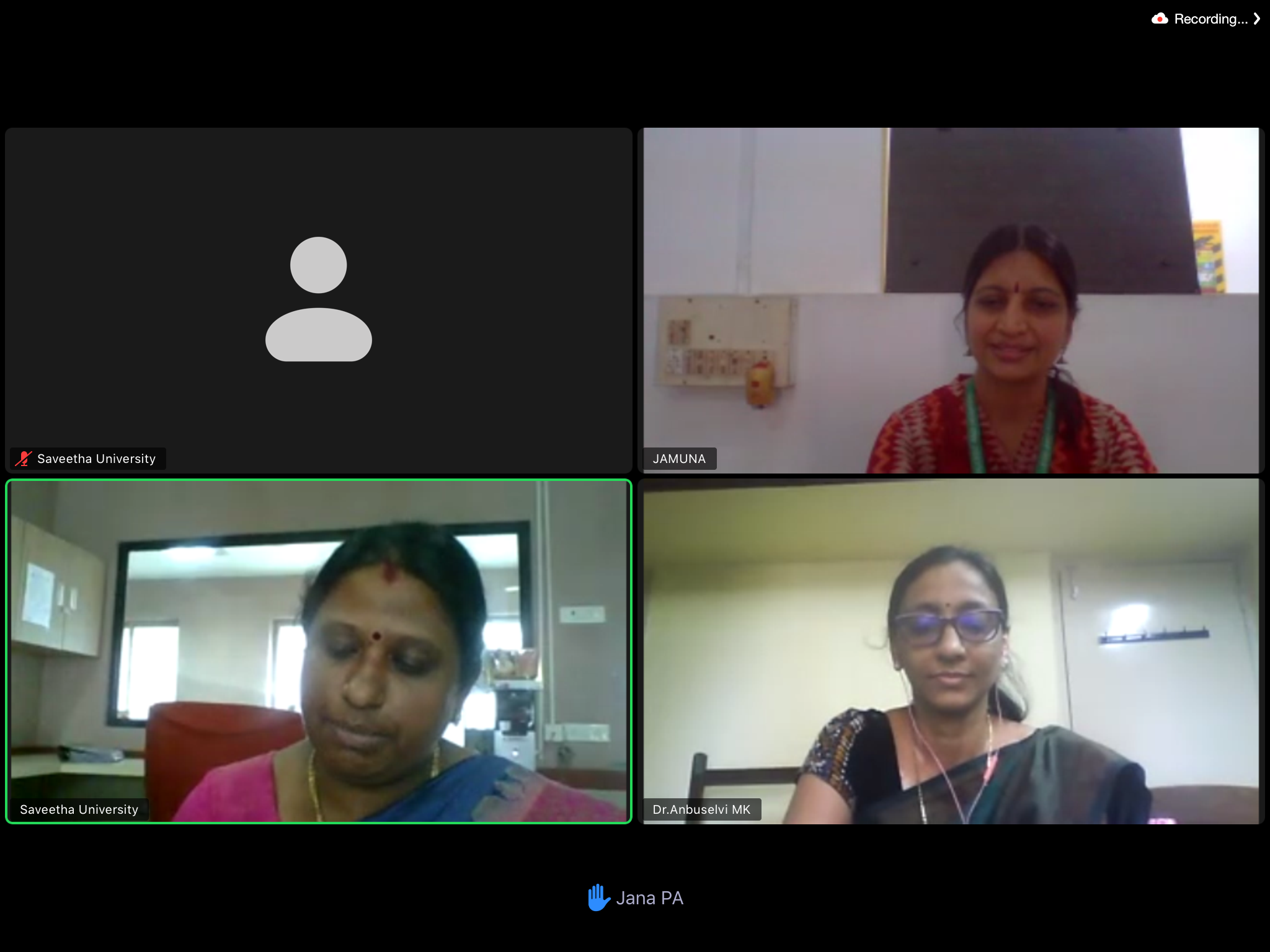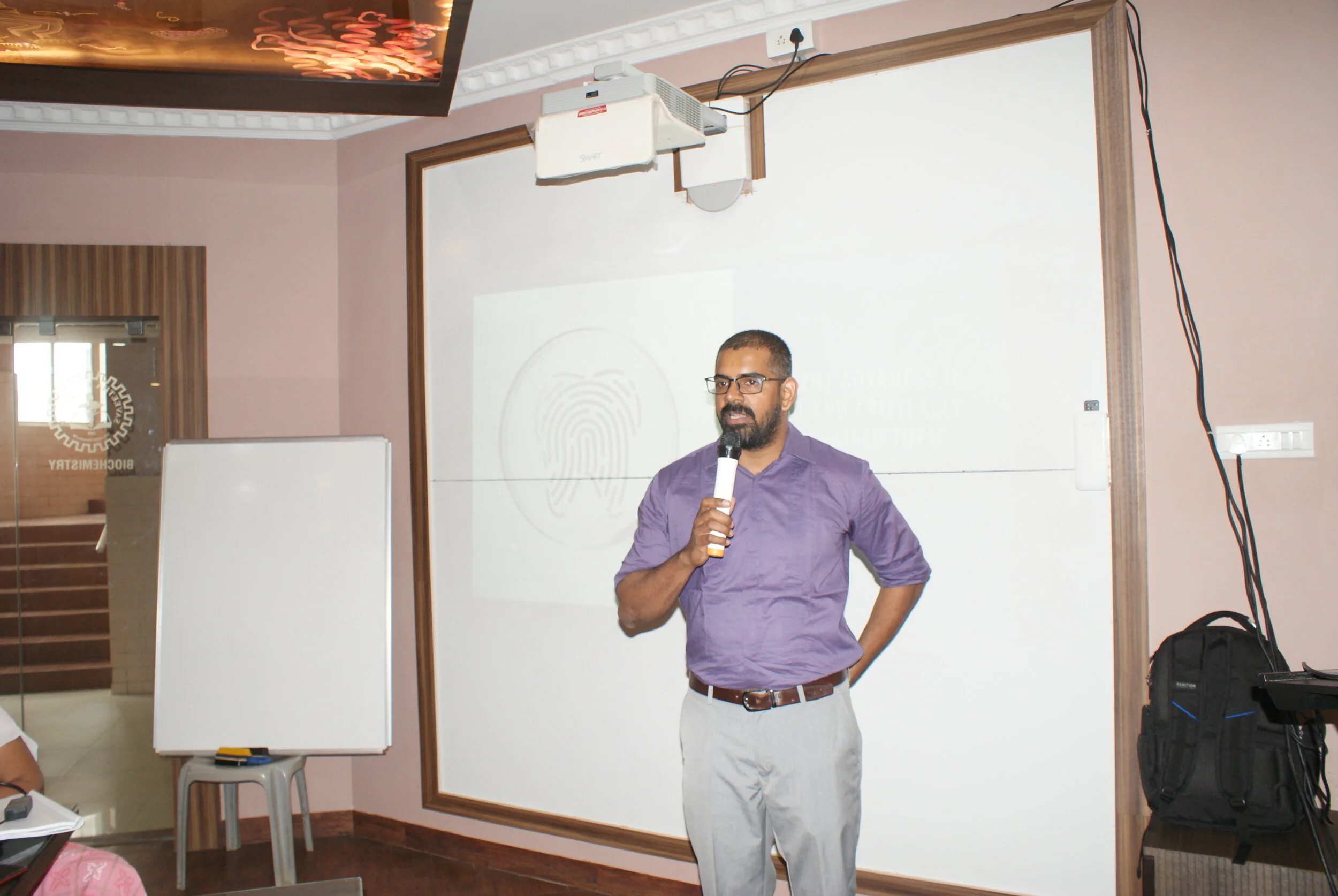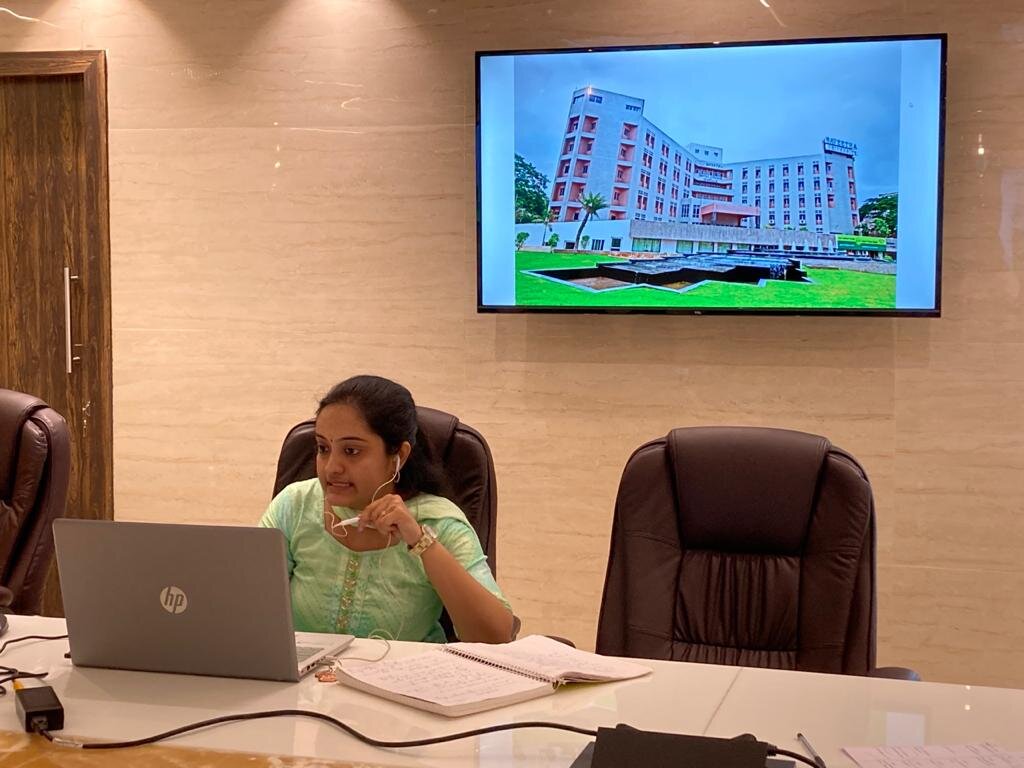BDS induction ceremony 2021, started with a welcome dance followed by invocation song and lighting the kuthuvilaku. The Director of Academics, Dr. Deepak Nallaswamy gave the welcome address.
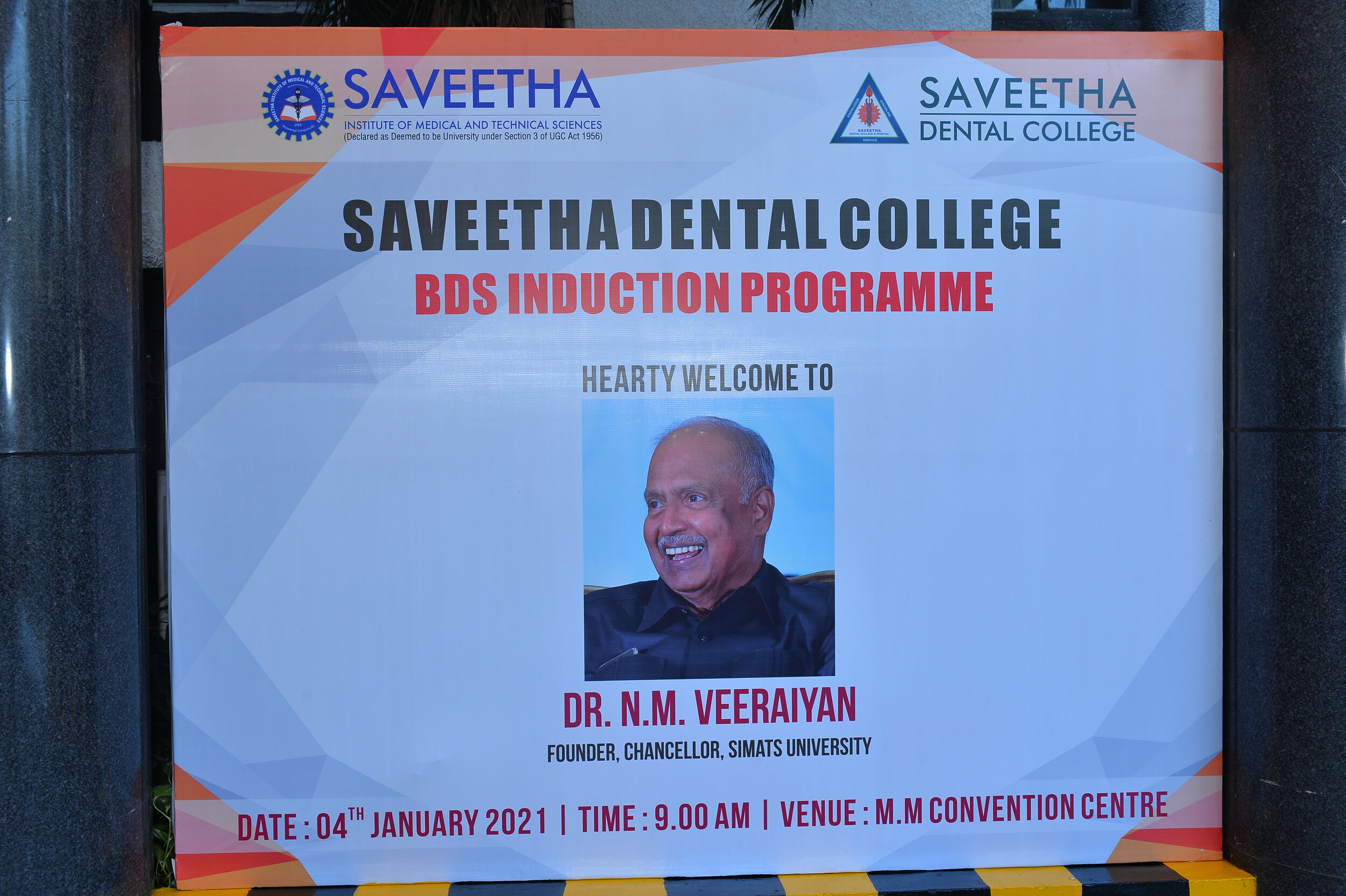
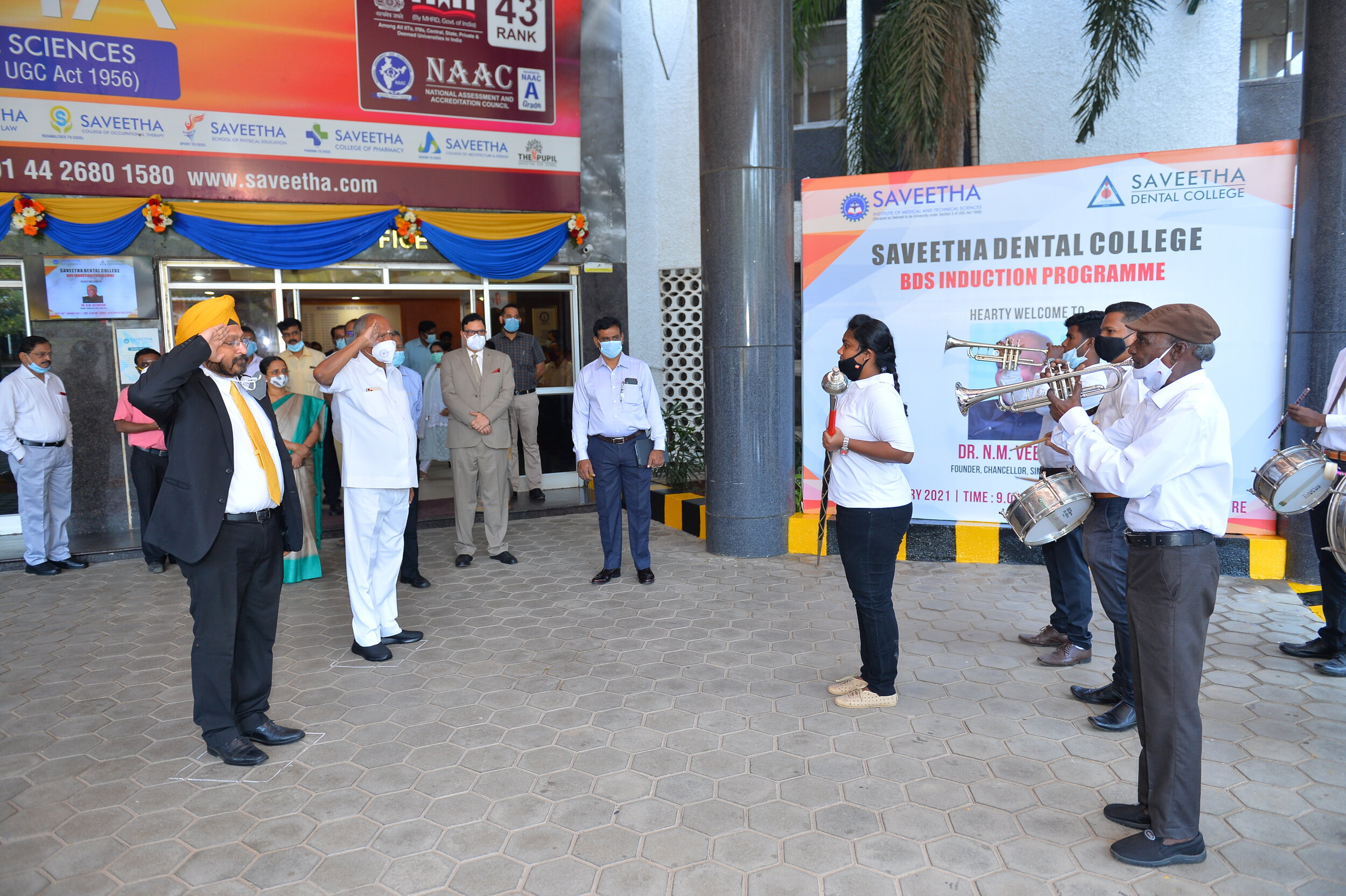
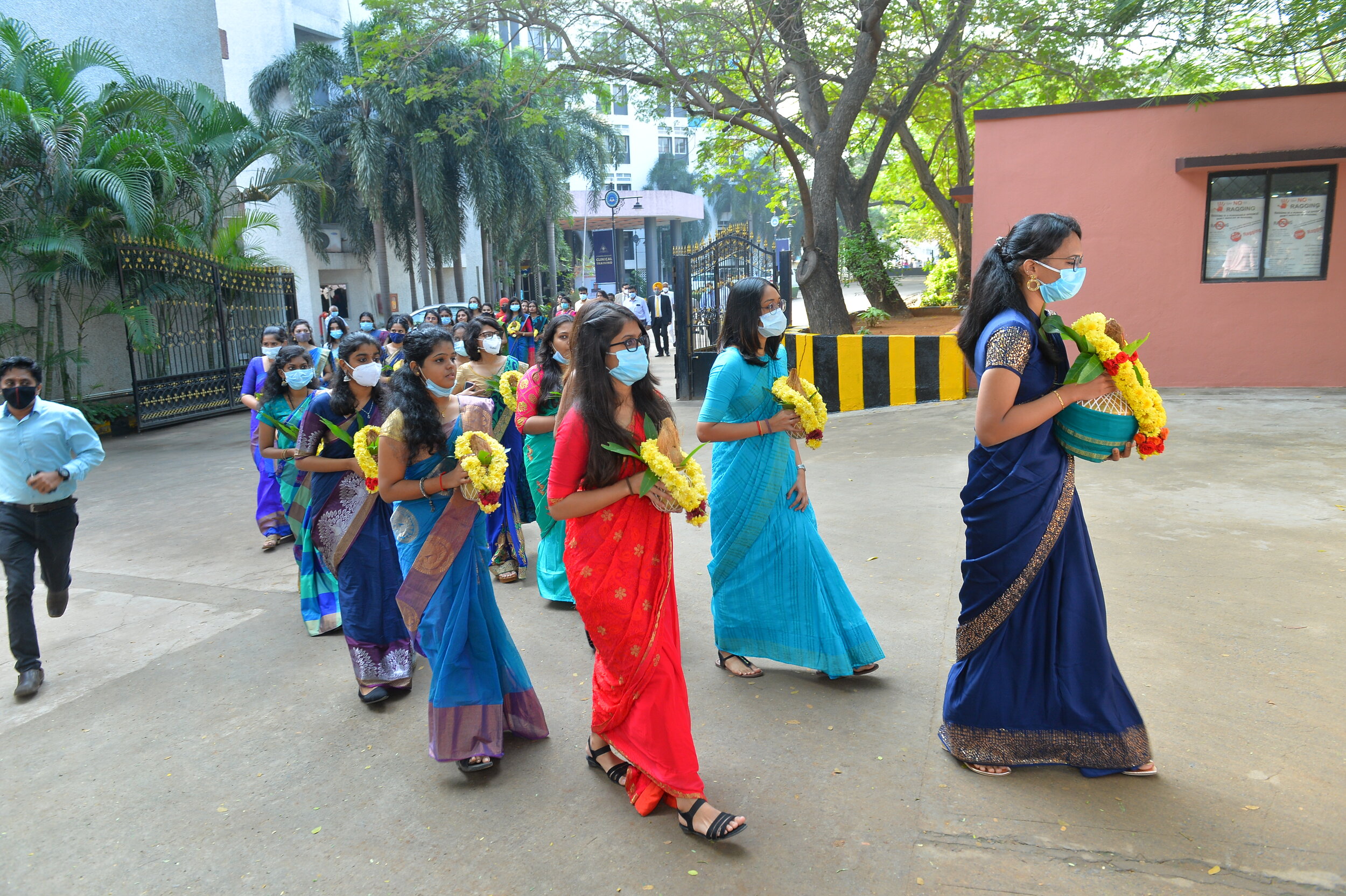
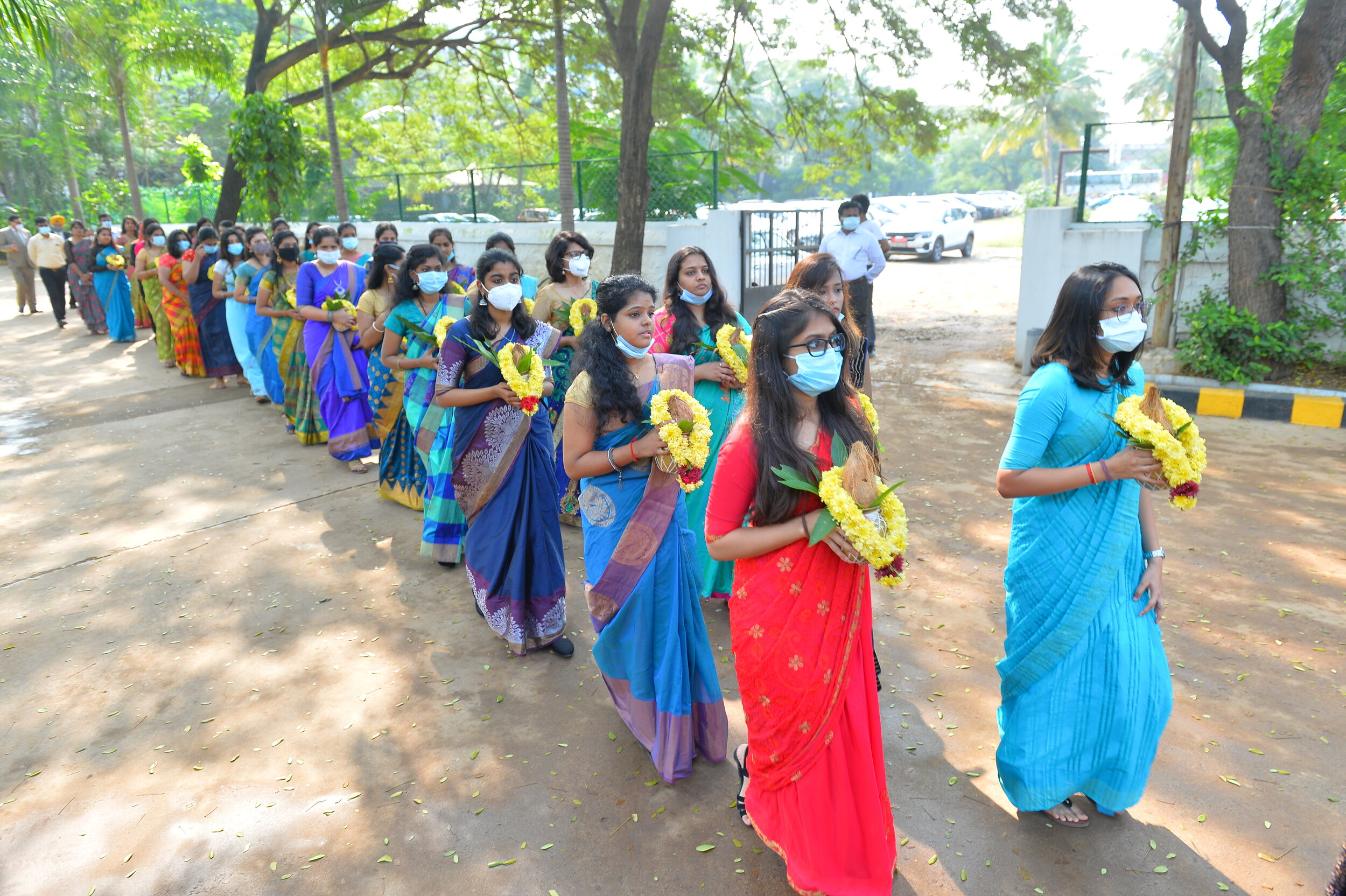
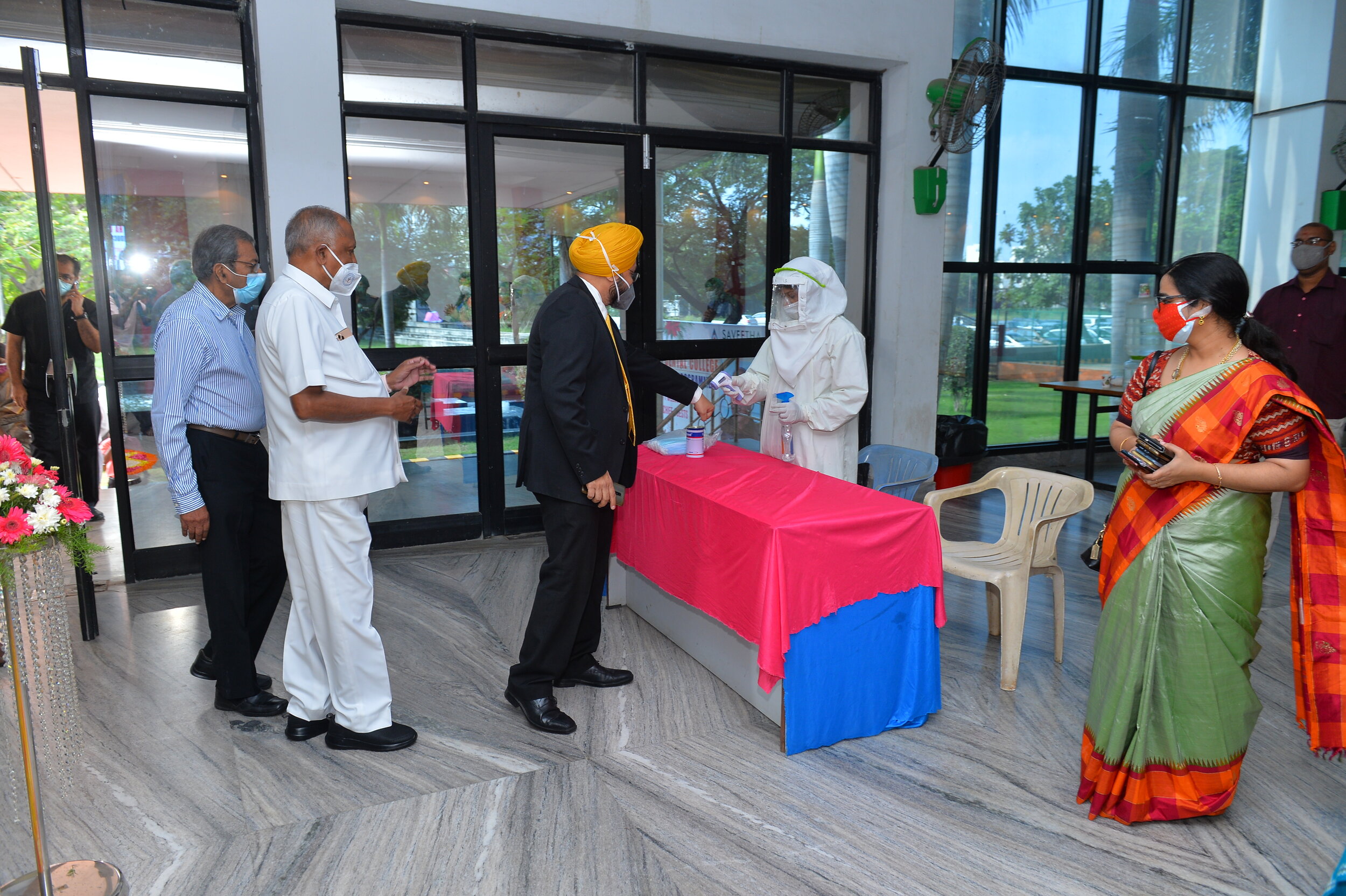
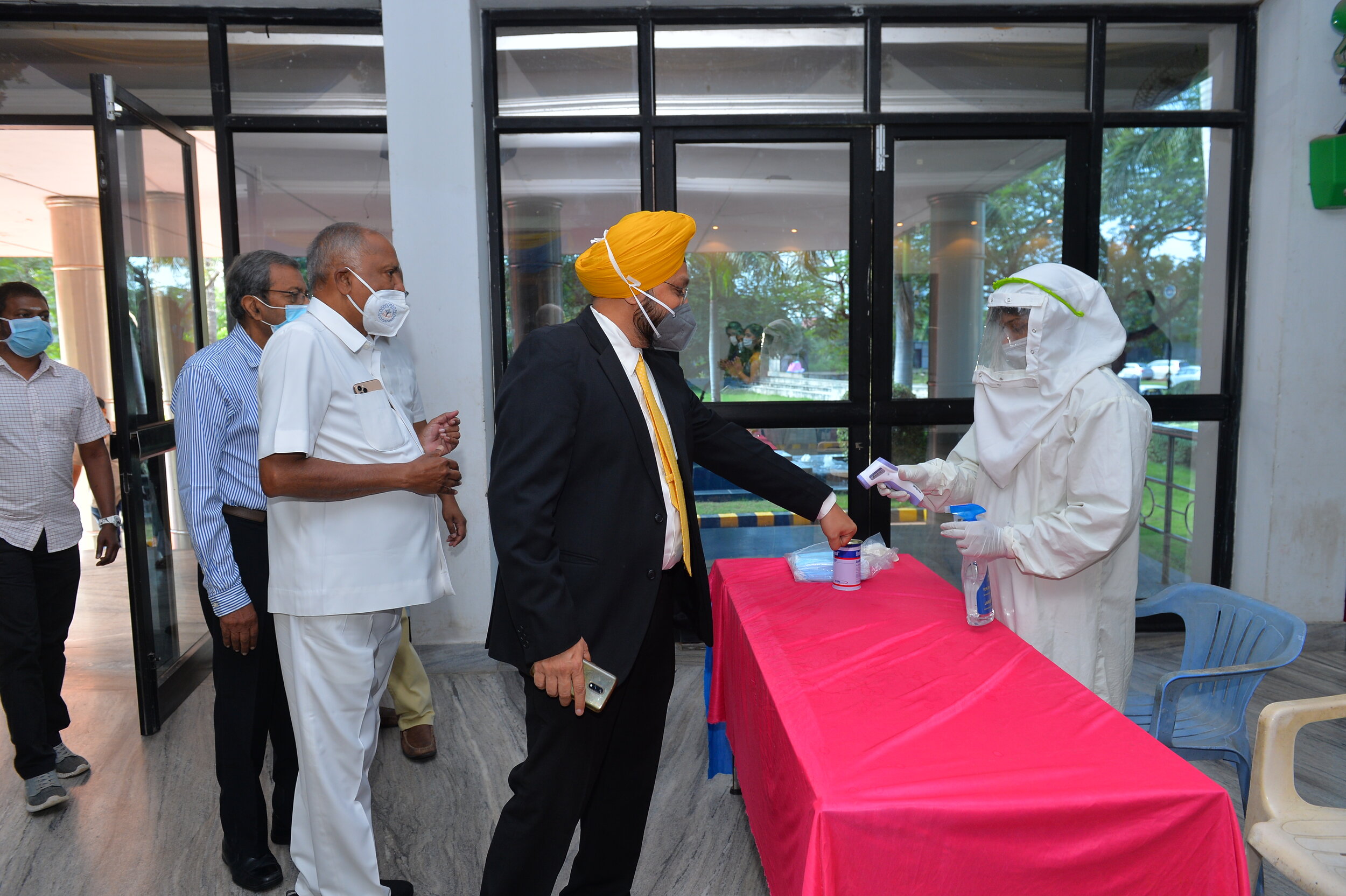
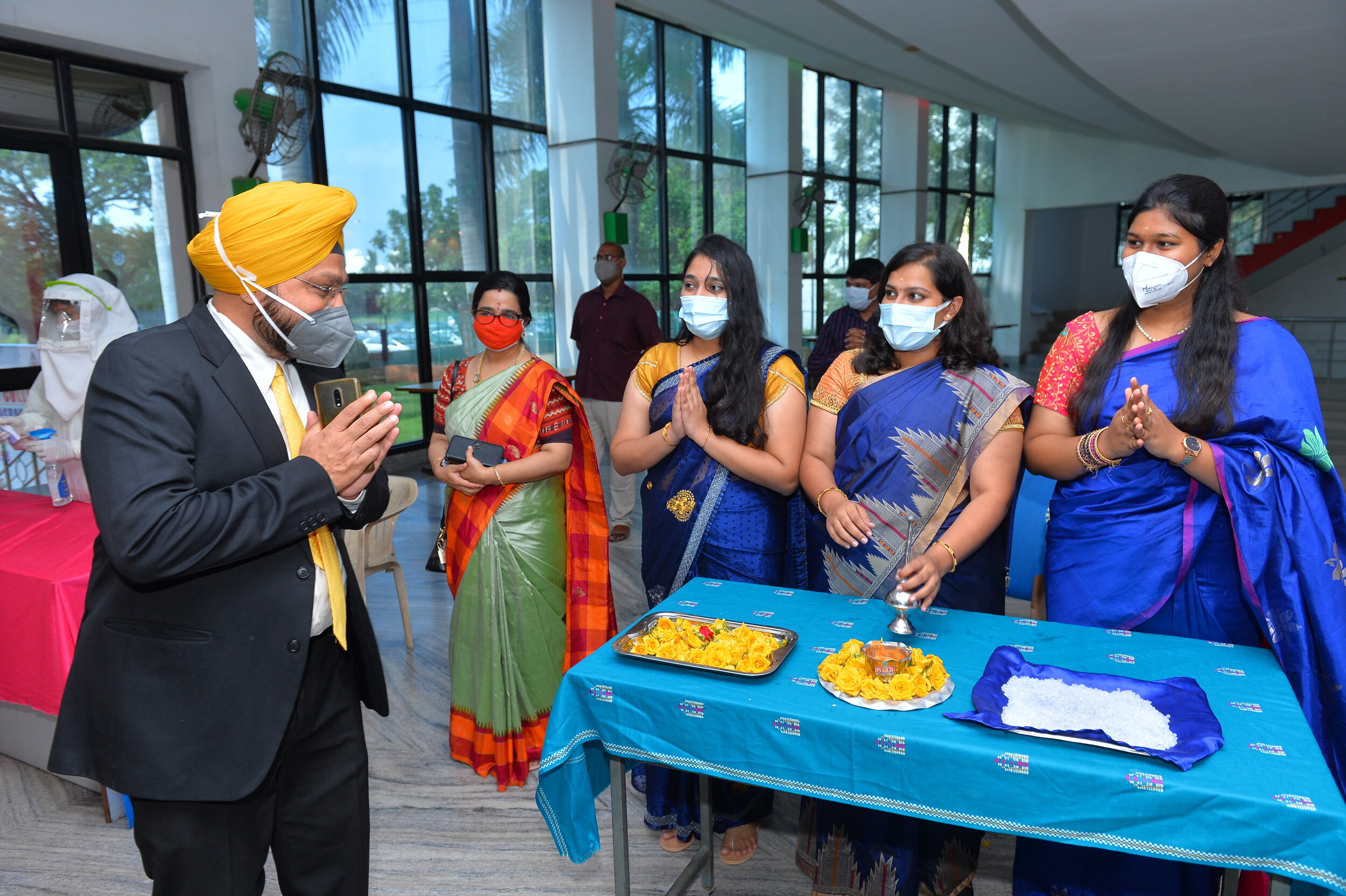
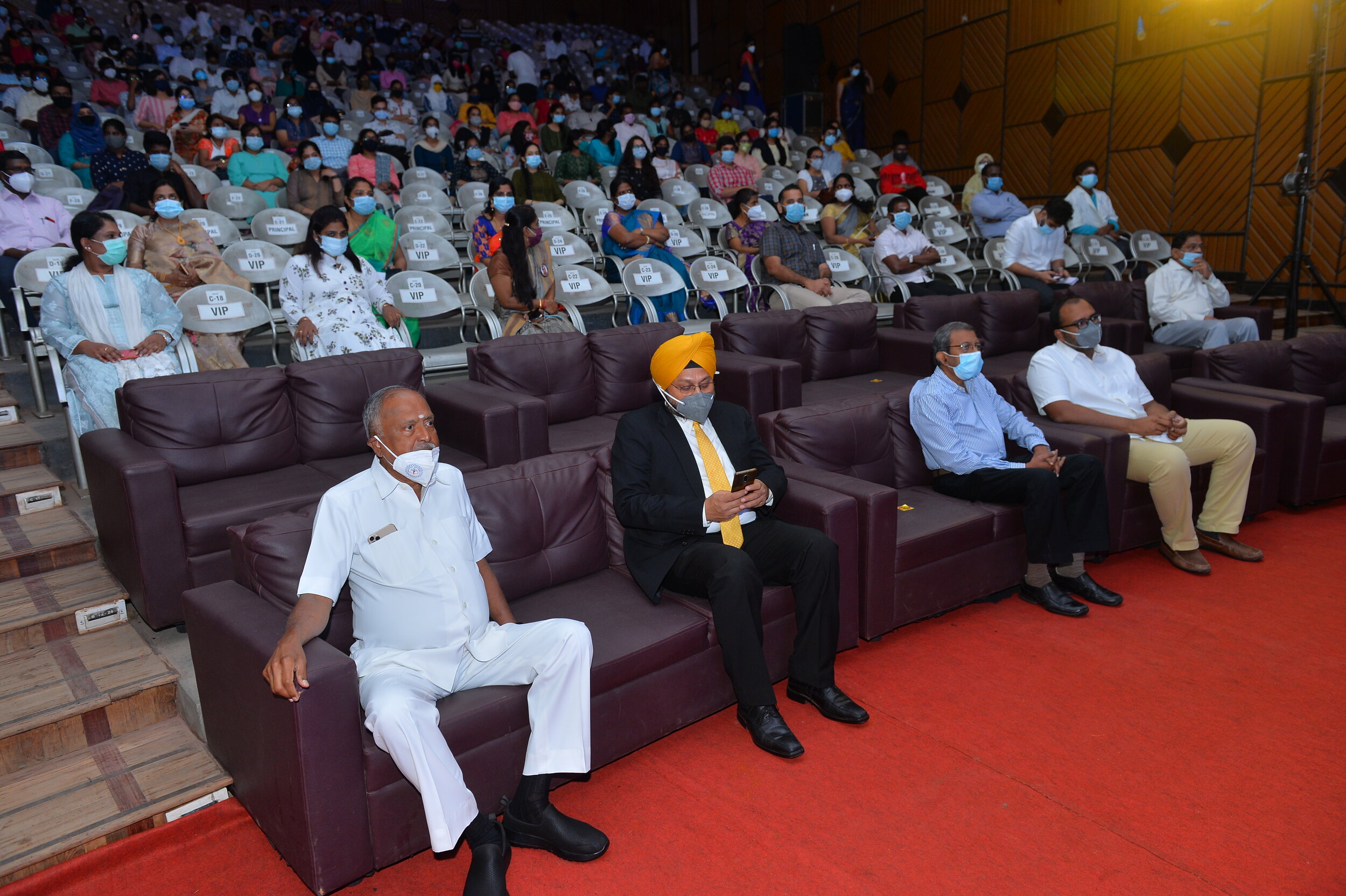
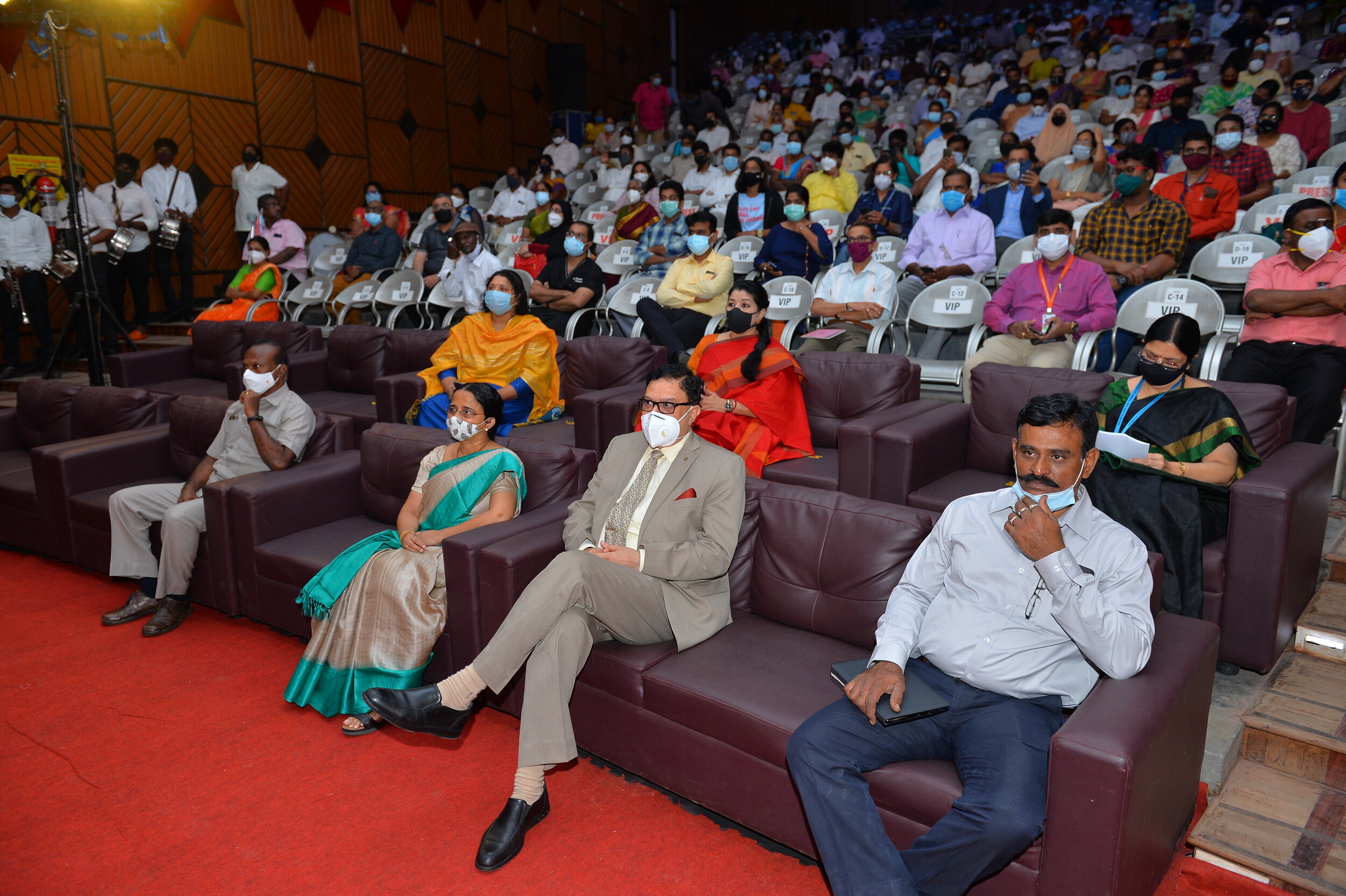
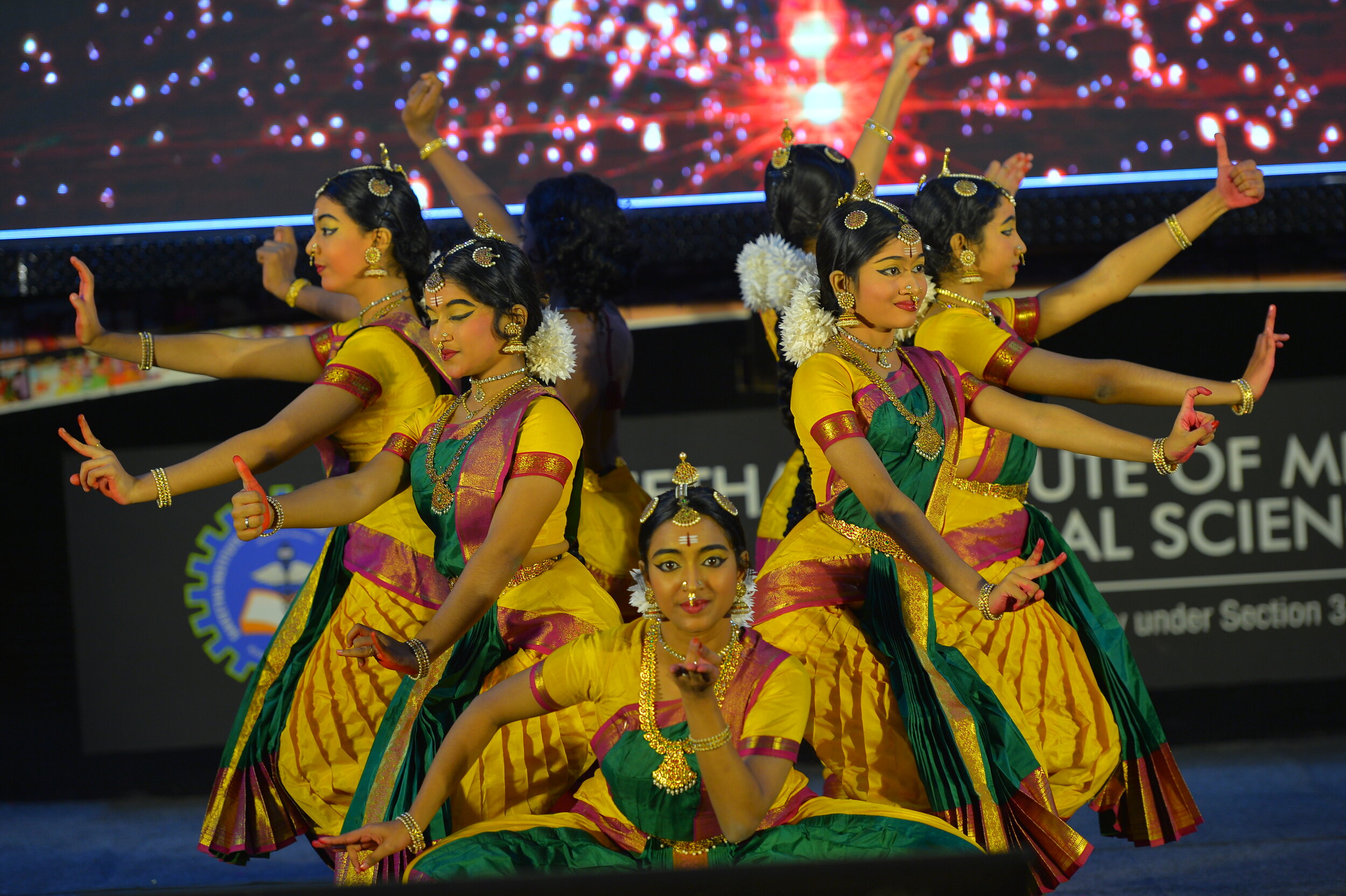
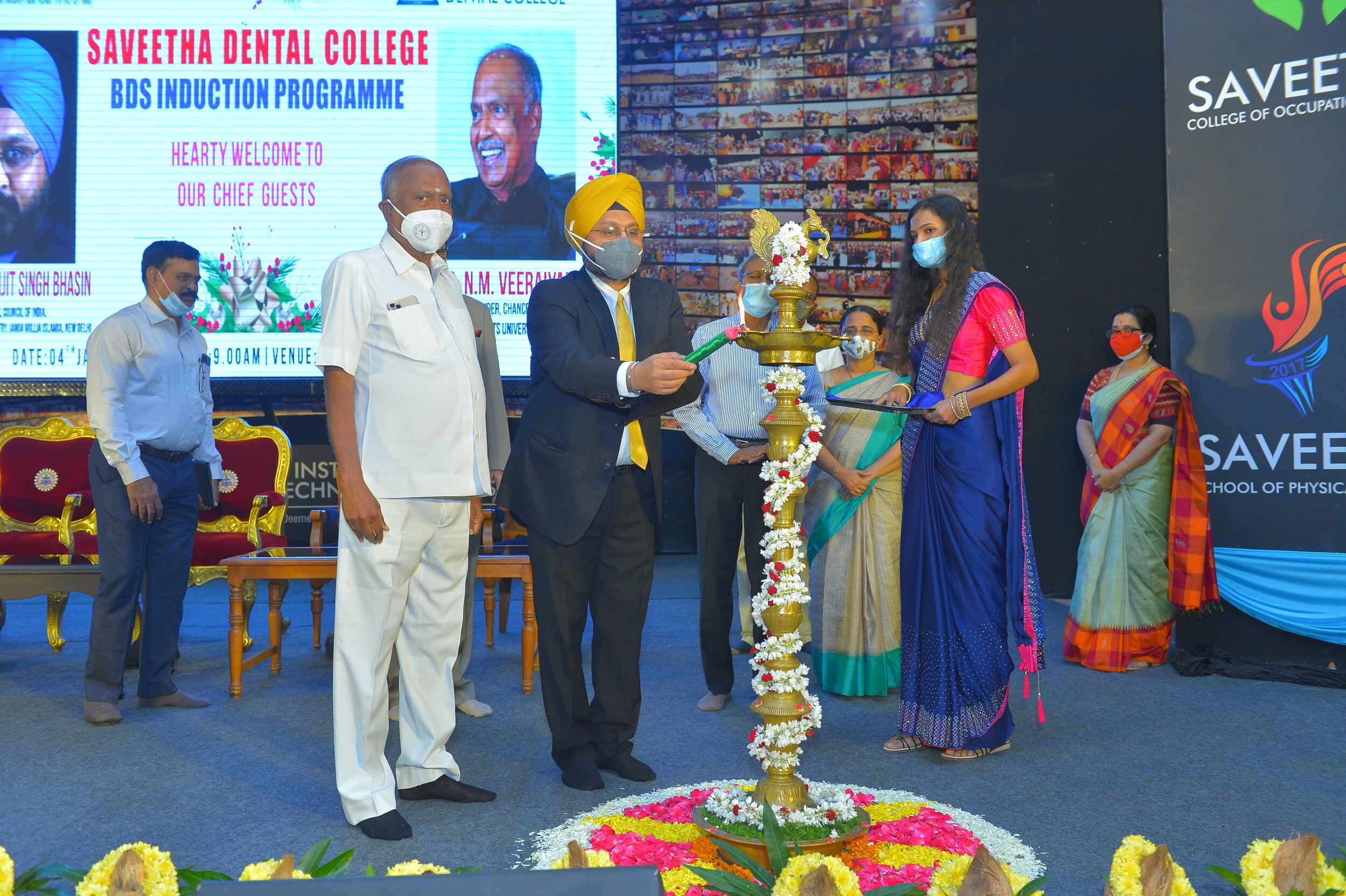
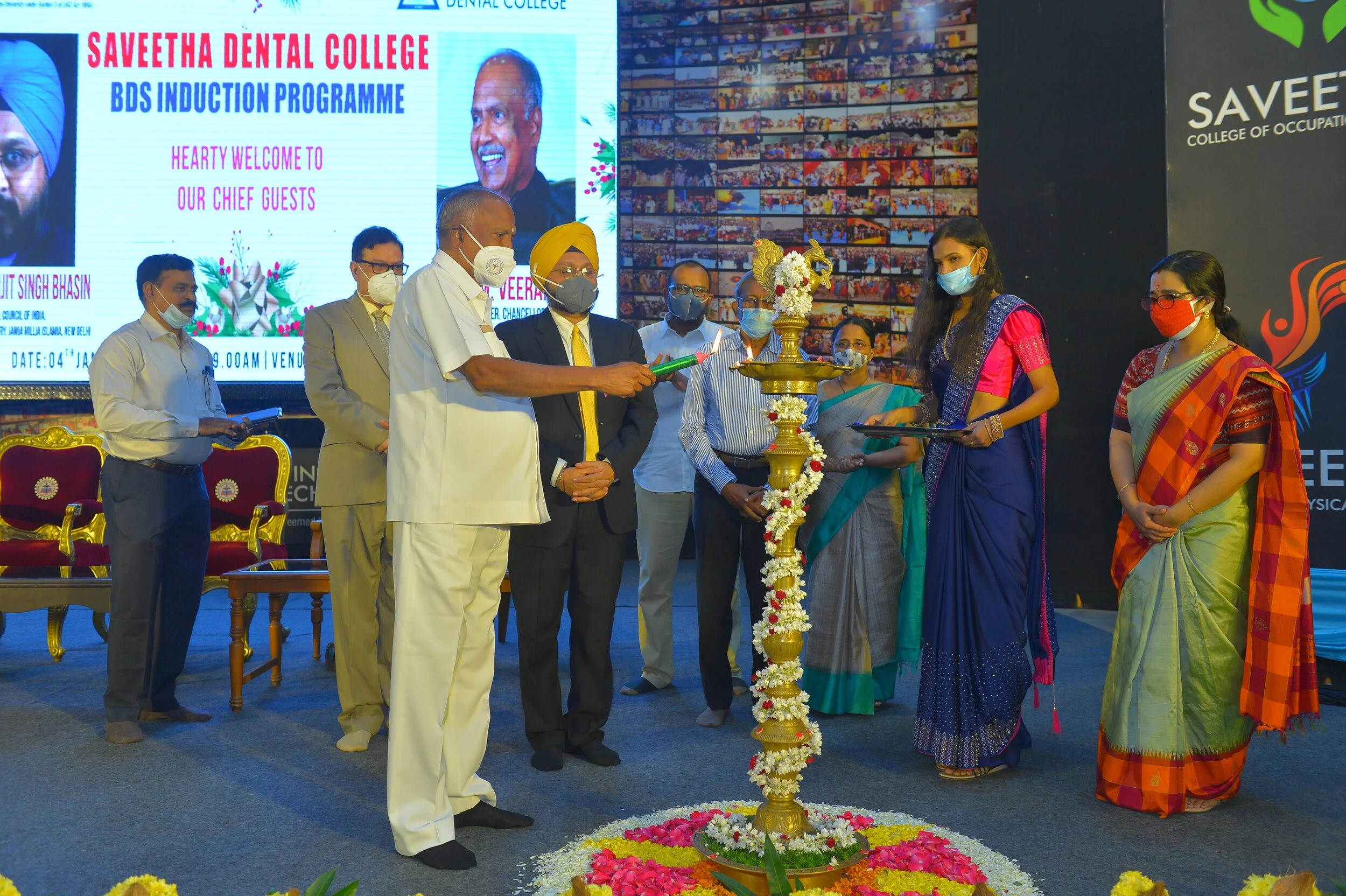
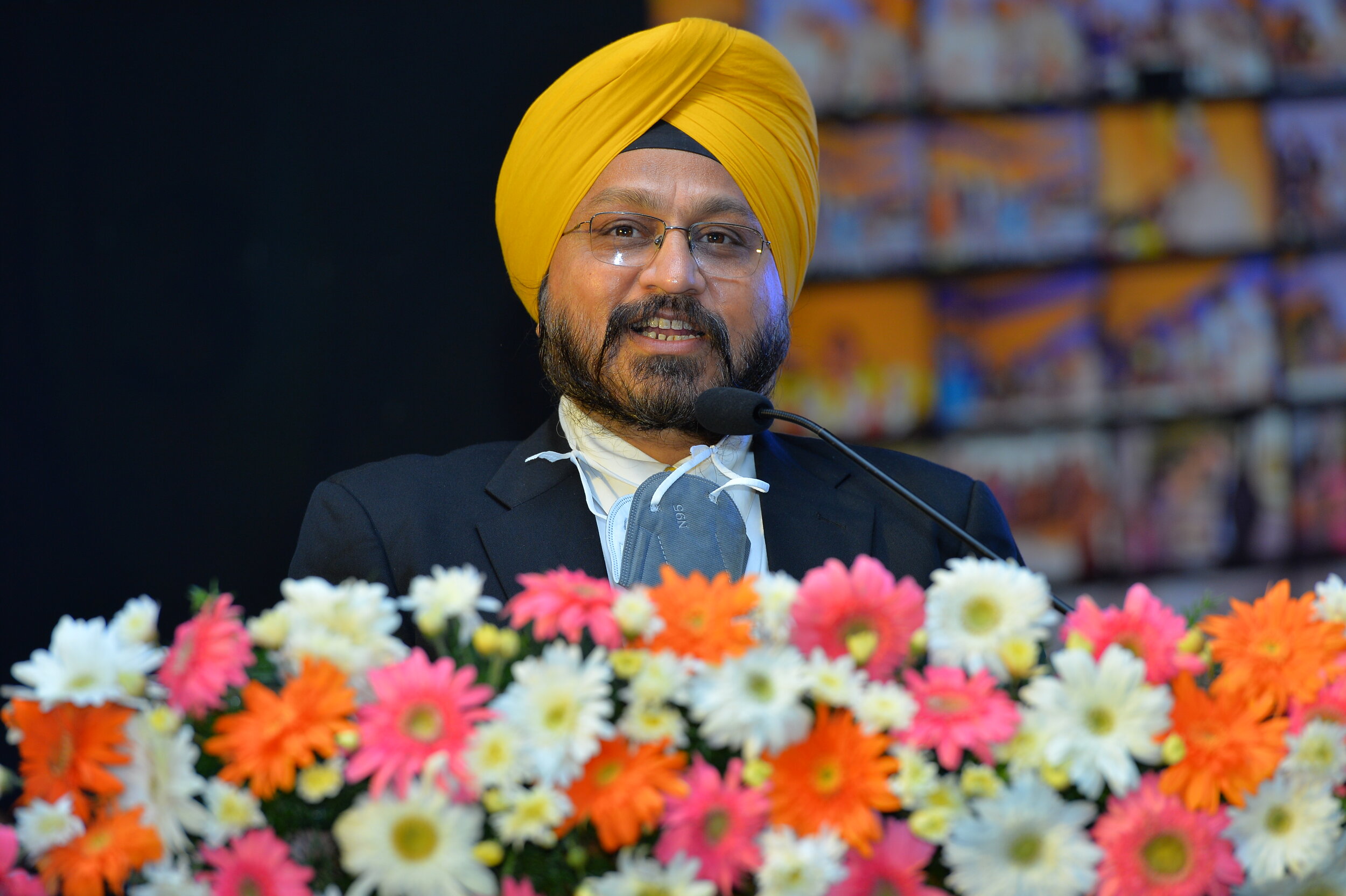
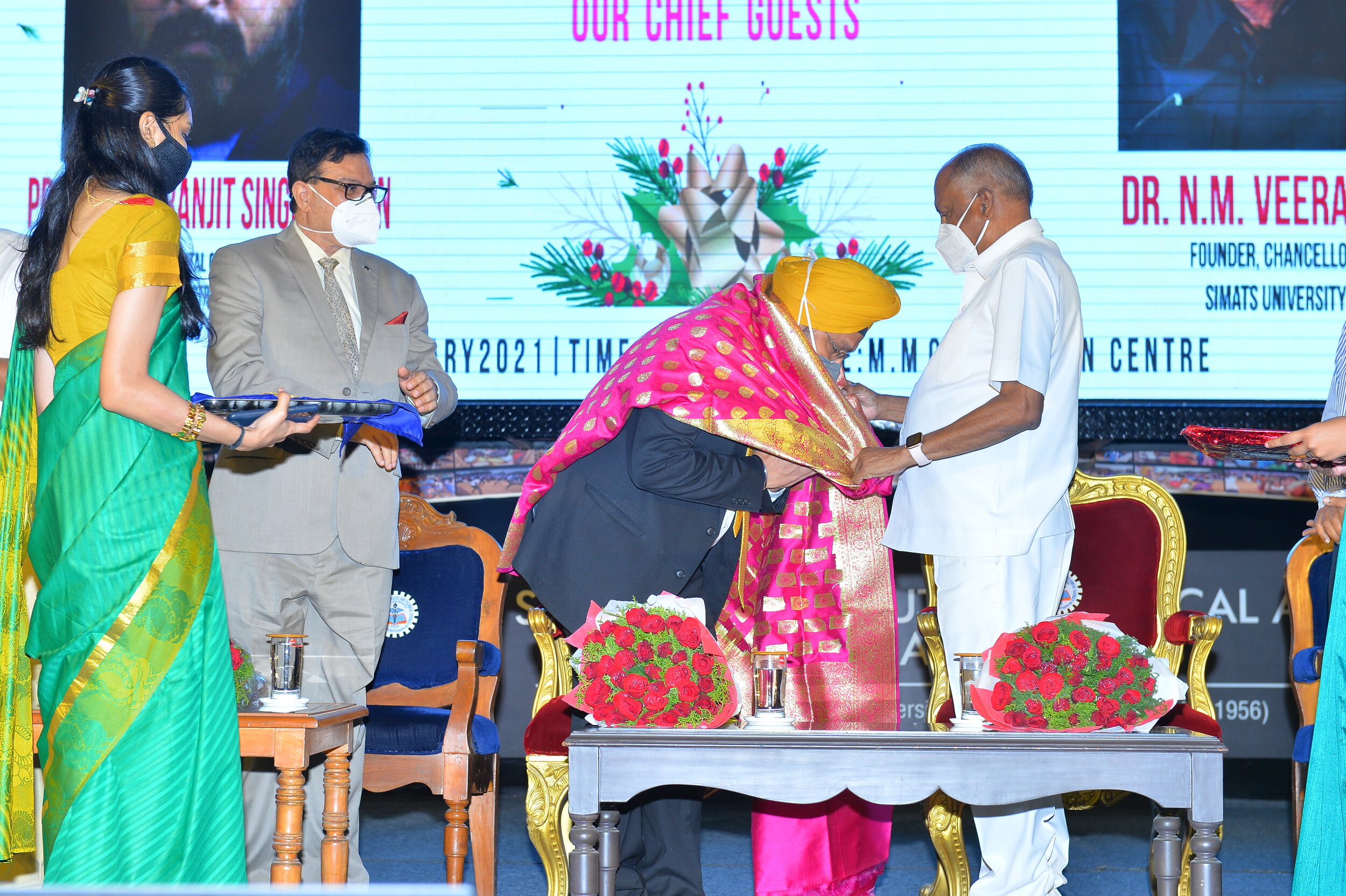
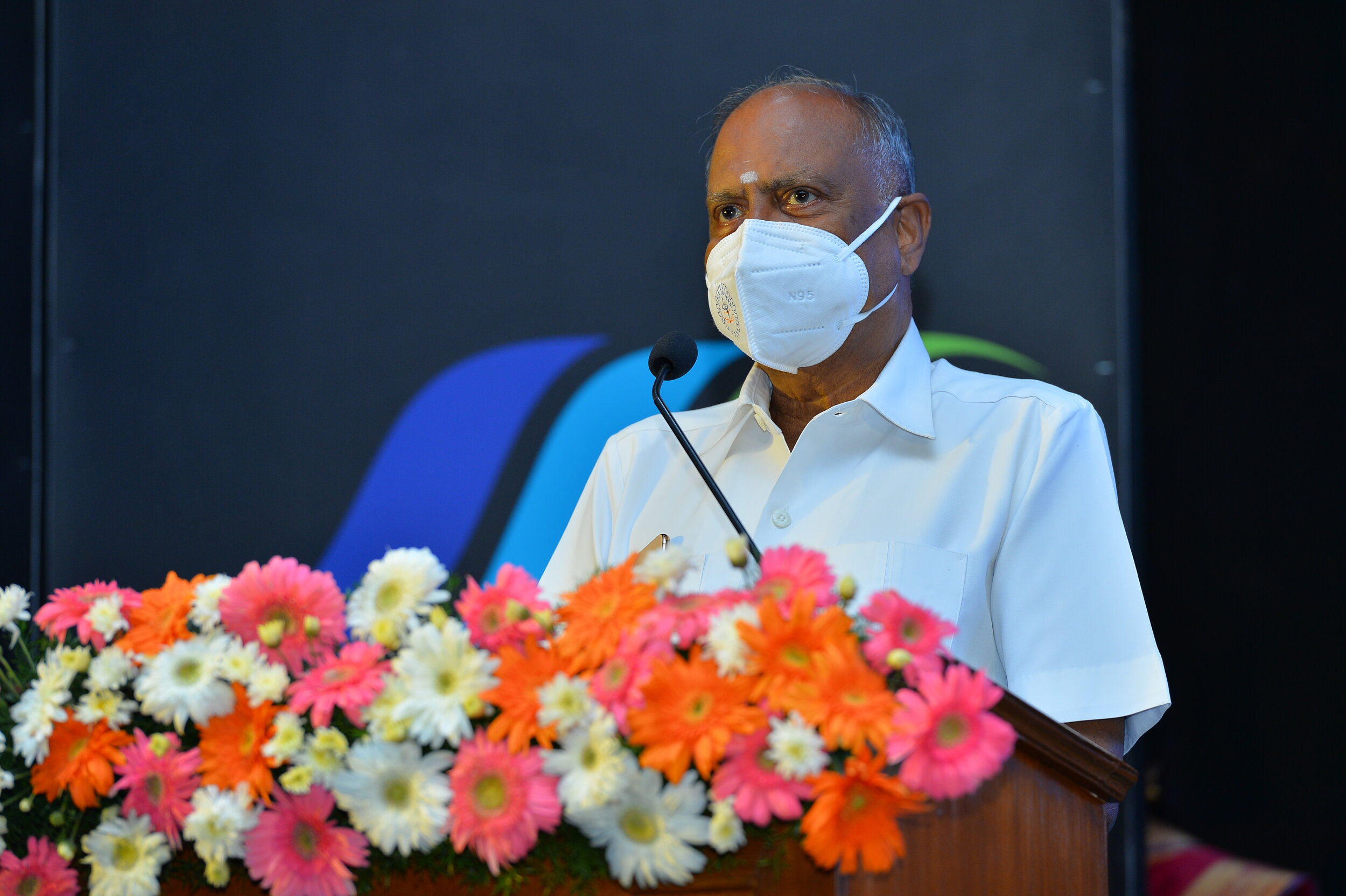
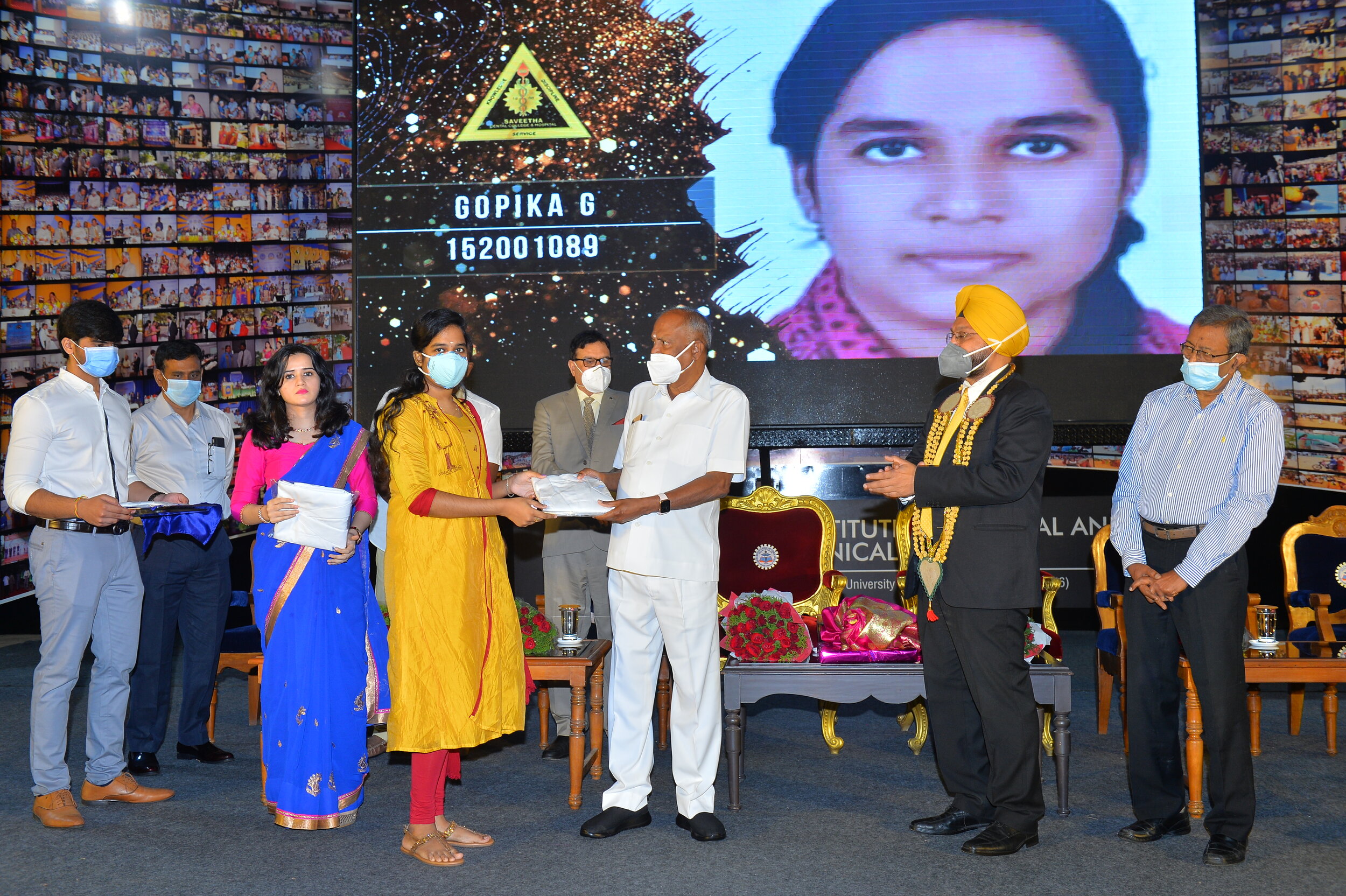
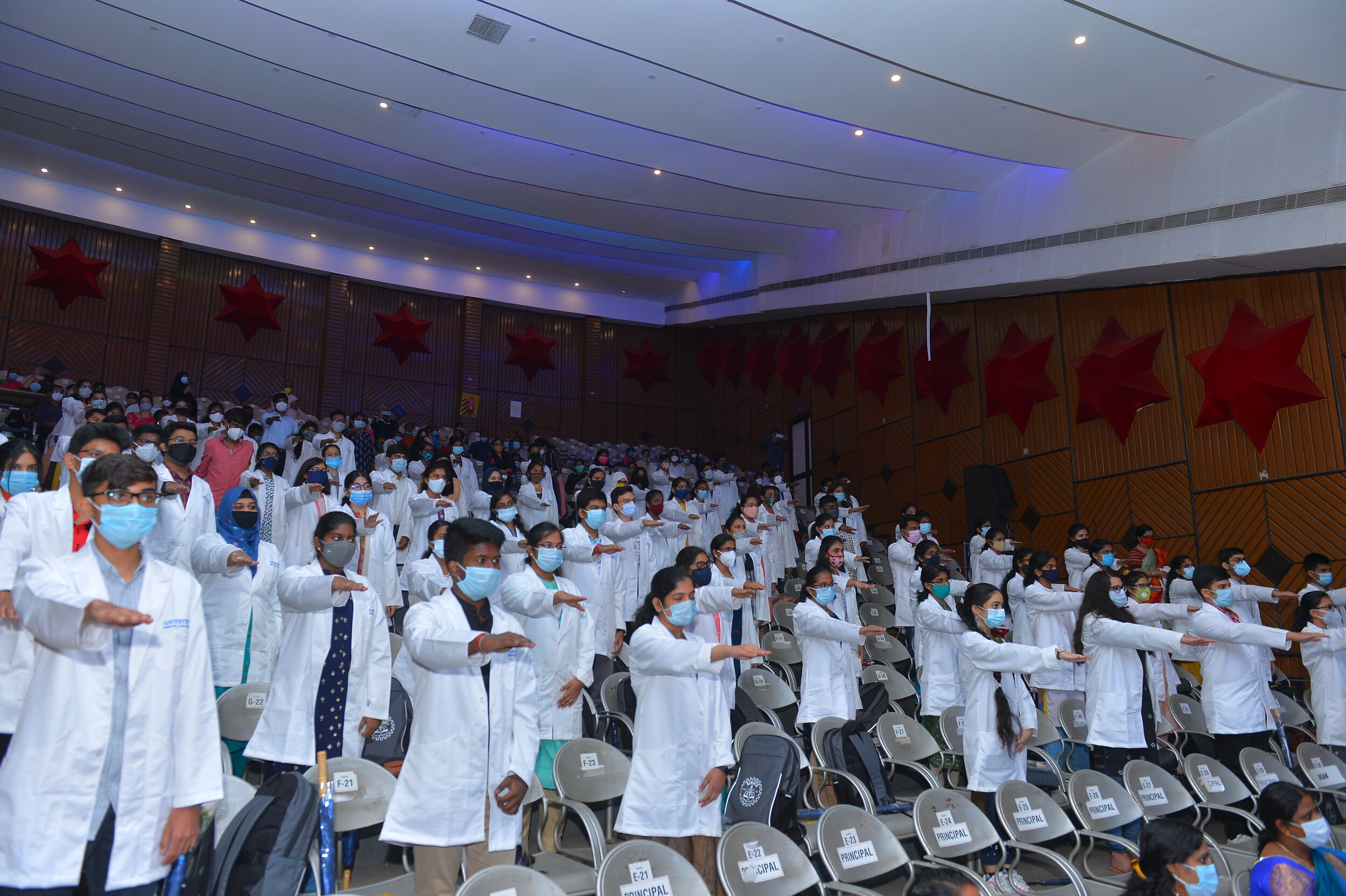
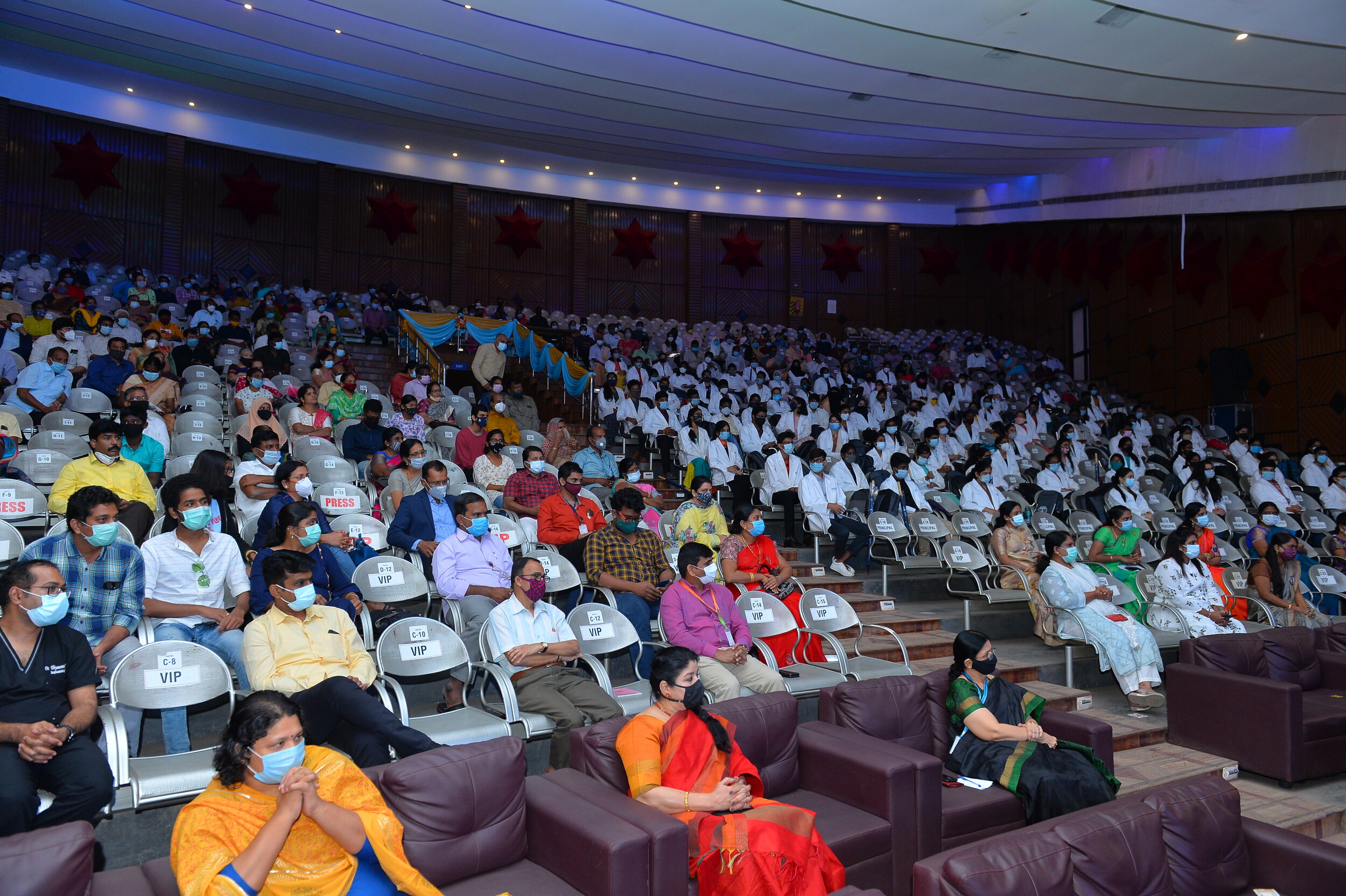




The chief guest of the day Prof. Dr. Saranjit Singh Bhasin addressed the gathering.Prof. Dr. Saranjit Singh Bhasin did his graduation (BDS) from Delhi University with Distinction and Gold Medallion in the year 1994. He is an alumnus and Post Graduate (MDS) from Banaras Hindu University in the specialization of Prosthodontics in 1997 and did his MBA in Healthcare Administration from Delhi University in 2014. He immediately joined his alma mater Maulana Azad Dental College & Hospital, New Delhi as teaching faculty and served it till 2005. After a brief stint as Scientist at a DRDO research laboratory, INMAS, he joined his previous assignment as Associate Professor in 2007. He was the Dean and presently heads the Department of Prosthodontics at the Faculty of Dentistry at Jamia Millia Islamia, a Central University at New Delhi. He has been actively involved in teaching Material Sciences as applied to Dentistry to both BDS and MDS students. His area of interest is metallic biomaterials and has been associated with research work involving Dental Implants at Institute of Medical Sciences, BHU and Institute of Nuclear Medicine & Allied Sciences (INMAS). Dr Bhasin has been an invited speaker at American Ceramics Society organized conferences. He is also a member of Indian Prosthodontics Society, Academy of Oral Implantology of India and Indian Dental Association. He was bestowed the Distinguished Alumnus award by the BHU during the 150 birth anniversary year of the founder of the university, Pd. Madan Mohan Malviya. He successfully hosted the 11th Indian prosthodontic Society’s P G convention in Delhi in 2009 as the Organising Secretary. At present he is a Member of Dental Council of India. He was Vice President of Delhi Dental Council as also President of Academy of Oral Implantology and editorial board member of the IPS. To his credit he has the fellowship of WCOI, and Diplomate of AOI.
The event went on with the Chancellor’s address to the budding dentist followed by the white coat ceremony. Associate Dean of Academics, Dr. Vishnu Priya, administers the oath. Few of our old students gave the testimony and the new bees also shared their experience in joining the college. Parents too were overwhelmed with joy and shared the reason on choosing Saveetha Dental College for their wards. Dean, Saveetha Dental College Dr. Sheeja Varghese gave the vote of thanks. There is no ceremony without a feast and there was lunch followed the event.
The event became a memory to all those who attended it to cherish for life.

